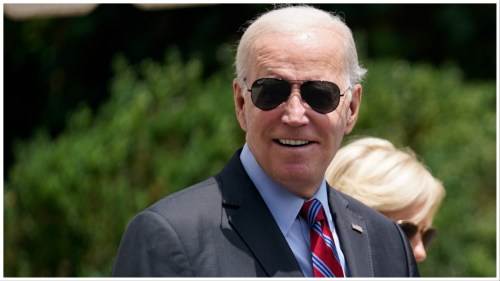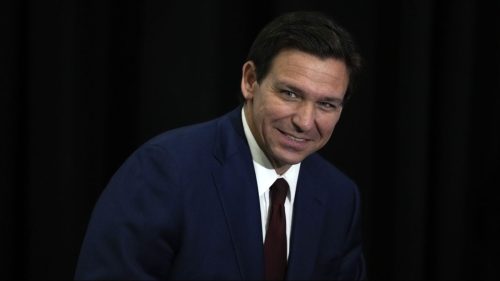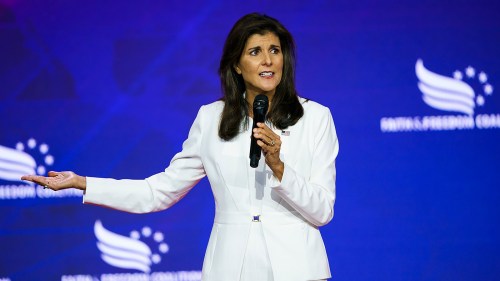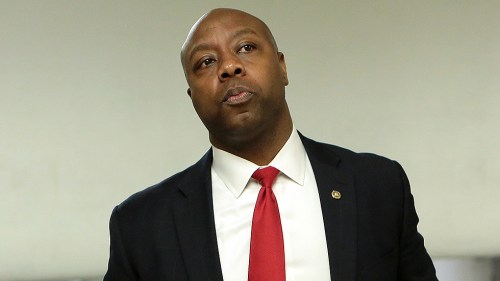Biden’s natural gas pause could complicate Pennsylvania strategy
The Biden administration’s pause on natural gas exports is putting the president in a tricky political spot in Pennsylvania, one of the key swing states in November.
Pennsylvania has been one of the biggest beneficiaries of the last decade’s natural gas boom in the U.S. The state’s production hit 7.5 trillion cubic feet in 2022, the second-highest in the nation behind Texas, according to data from the Energy Information Administration. The advisory firm FTI Consulting estimated the industry supports some 123,000 jobs in the state in research for natural gas firm the Marcellus Shale Coalition.
The administration earlier this year halted new export permits for liquefied natural gas (LNG) while it analyzes their impact on climate change, something that Republicans are sure to pounce on in a state where Biden is not only running neck and neck with former President Trump, but also where Democrats are looking to hold onto a critical Senate seat.
“This is one of those issues the Democratic Party gets split on, it depends on what state you’re in and what part of what state you’re in,” said Samuel Chen, a Republican political strategist based in Pennsylvania. “I think it’s an albatross in the sense of, if he leans more into the climate side of the party he’s going to lose people in these industries … [but] if he leans the other way, he runs the risk of isolating the environmental side.”
Trump has long sought to associate Biden with support for bans on fracking, the process responsible for the state’s natural gas boom. Although Biden’s official campaign platform never proposed a ban, the GOP nominee hammered him over the issue in the 2020 presidential debates, bringing up comments by Biden on the need to “make sure it’s eliminated” and that he opposed “new fracking.”
No new proposed ban has materialized while Biden has been president. However, the administration’s pause on LNG export permits has drawn GOP criticism and caused some Democrats in the state, including Sen. Bob Casey, who’s running for reelection, to distance themselves from the White House on the issue.
“While the immediate impacts on Pennsylvania remain to be seen, we have concerns about the long-term impacts that this pause will have on the thousands of jobs in Pennsylvania’s natural gas industry,” Casey and Sen. John Fetterman (D-Pa.) said in a joint statement in February. “If this decision puts Pennsylvania energy jobs at risk, we will push the Biden Administration to reverse this decision.”
Casey has has consistently polled ahead of Biden in the state and currently leads his GOP opponent David McCormack by 7 points in an aggregate of polls from The Hill and Decision Desk HQ. Biden, meanwhile, is trailing Trump by roughly 1 point, 47 to 48 percent support, in the same aggregate.
Casey “[has] an easier time walking this line” because Pennsylvanians are his only constituency, Chen noted. “For President Biden, you’re running in 50 states and the District of Columbia. What works in Pennsylvania may not work in Georgia.”
Mike Mikus, a Pittsburgh-based Democratic strategist, called Casey’s dissent from Biden on the issue “smart politics.”
“When you’re running statewide in Pennsylvania, it always plays well with voters whenever you show some independence regardless of the issue,” he told The Hill.
In any case, Democrats are doubtful the issue will hurt Biden significantly.
“I’m actually very confident that the president is going to win in Pennsylvania,” Fetterman told The Hill. “[But] it’s going to be very close, and Trump is very popular in Pennsylvania. I do not think that natural gas is a defining topic there.”
“Bob Casey and I disagreed about” the decision, Fetterman added, but “we’re able to be very committed partners to carry Pennsylvania and deliver a win.”
Mikus echoed Fetterman’s sentiments.
“If I’m President Biden or his campaign team, I’m not terribly concerned — natural gas is important in Pennsylvania, but this issue — there have been political fights going back 15 years over this issue,” Mikus said. “I think people who feel strongly one way or another have already picked a side.”
Younger and progressive voters, voters who rank the environment as a top priority and the combination of all three were a major part of the coalition that secured Biden’s 2020 victory.
Many of the president’s early moves, such as a now-ended moratorium on new oil and gas leasing on public lands and the appointment of Deb Haaland as Interior secretary, won plaudits from those circles.
Over the course of his presidency, however, he has frustrated them with moves like approving a massive oil drilling project in Alaska, and many of those younger voters have also been disillusioned by his response to a nonenvironmental issue, the war in Gaza.
More recently, Biden has taken steps that have gotten better reviews from the environmentalist wing of the party, including the LNG pause and restricting oil extraction in a broad swathe of the Arctic. In remarks for Earth Day last week, he shared the stage with major progressive voices in the party, including Sen. Bernie Sanders (I-Vt.) and Rep. Alexandria Ocasio-Cortez (D-N.Y.).
In the end, Mikus said, the political polarization that has occurred in national politics may end up blunting the impact of the natural gas decision in Pennsylvania.
“I think it’s a direct result of the over-the-top attacks Republicans have used against Democrats for years” on environmental issues, he said. “If [voters] were strongly in support, they gravitated to the Republican Party and have stayed there.”
Copyright 2023 Nexstar Media Inc. All rights reserved. This material may not be published, broadcast, rewritten, or redistributed. Regular the hill posts












